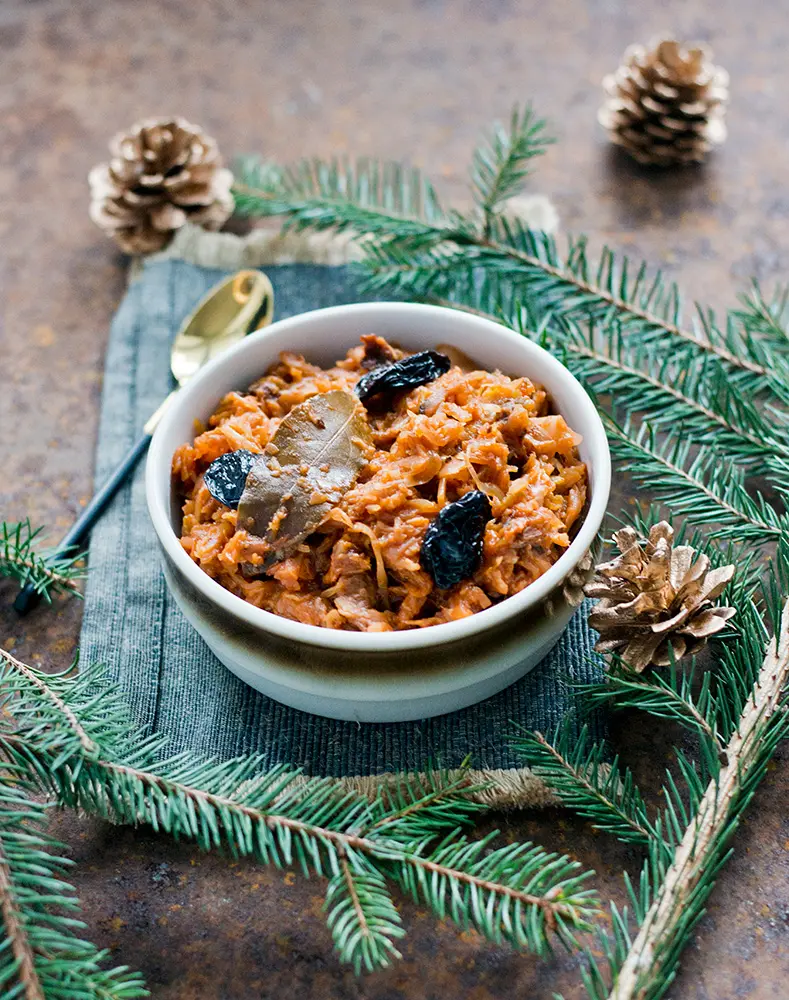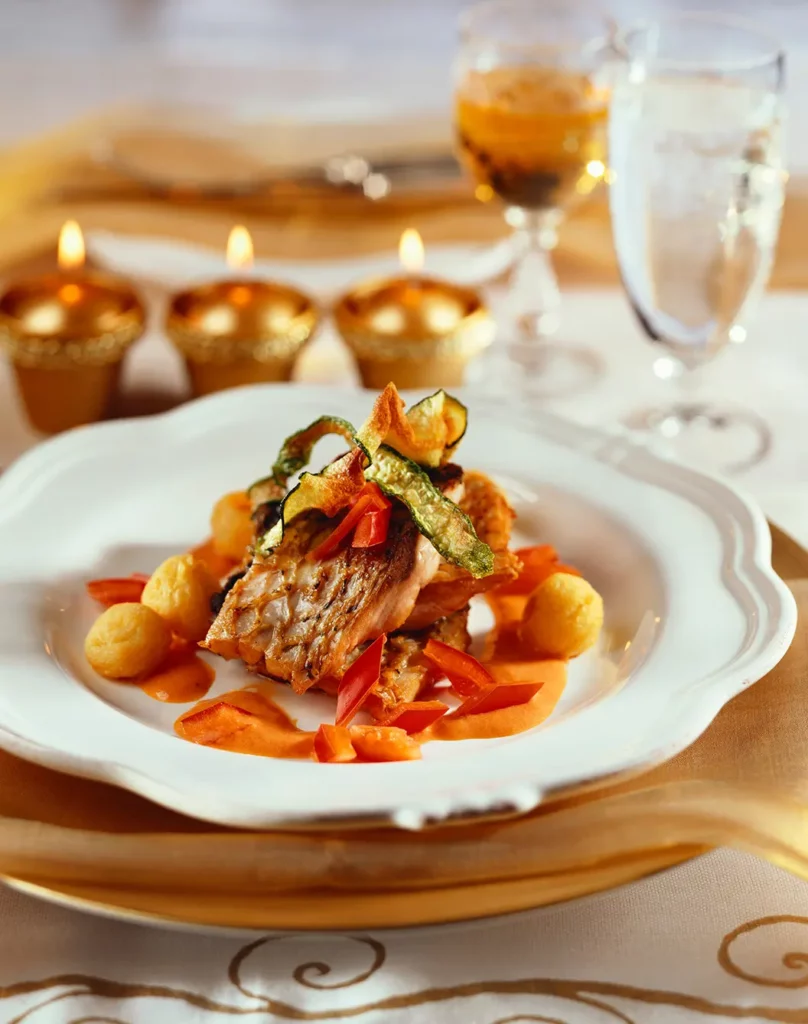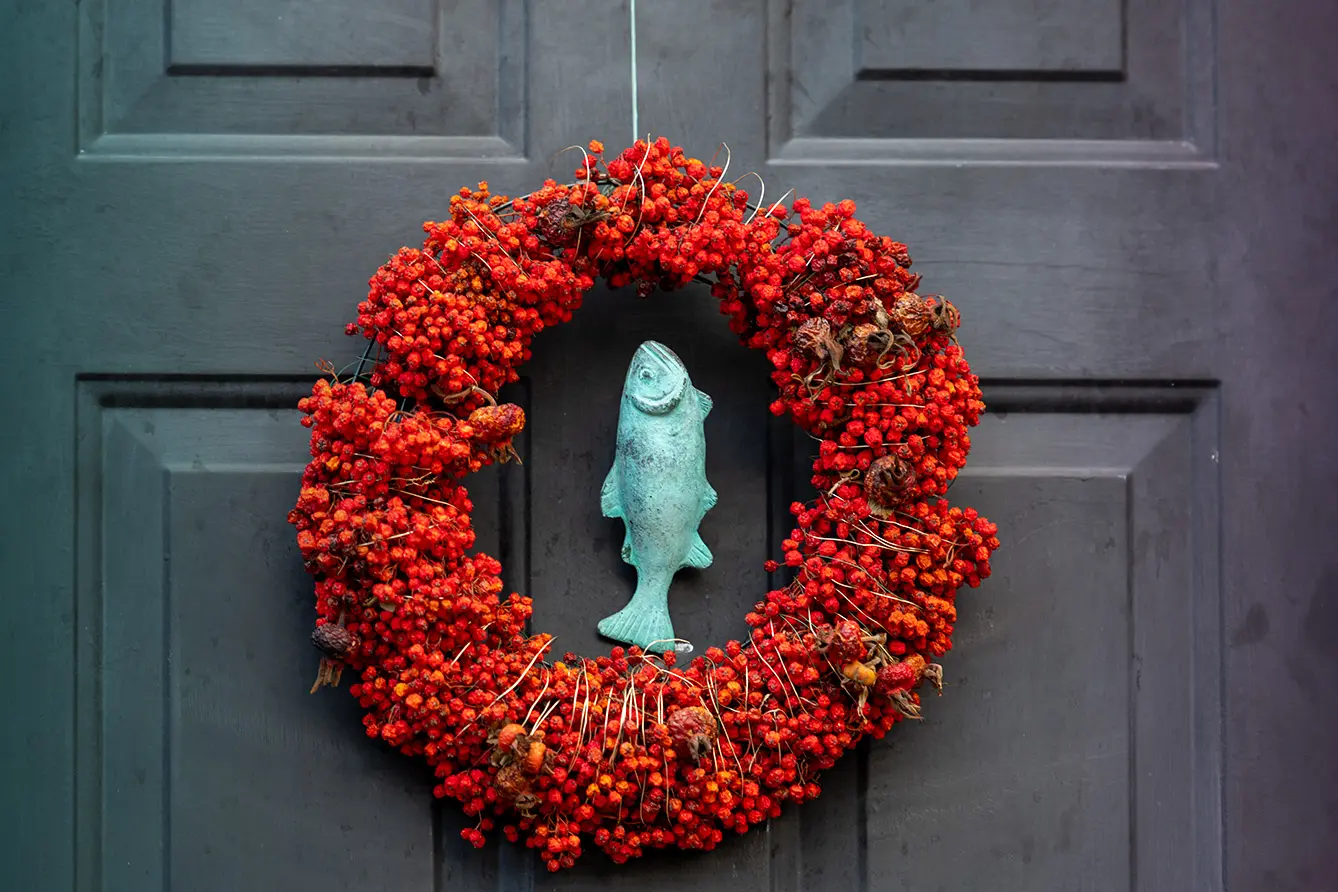First, it has to be said that many similarities between traditions result from the Christian faith, which united the region and had a major influence on all cultures. Originally, the winter solstice celebration turned practically across all countries into the celebrations of the Birth of Christ – the Light for the People. With the theologically reasonable explanation, many customs were revamped to fit the new faith, with some new ones introduced. So, which particular features of this special time in the year unite the Three Seas Nations?
No meat and fasting
Tradition typically originating from the Christian faith encouraged people to fast on the day of Christmas Eve in preparation for the celebrations. This custom is still practiced by many, and not only because there is still so much to prepare that you need more time to eat. Whether you are a follower of the Christian religion or not, the idea of fasting has embedded in the cultural code, and nobody seems to eat a lot before the main evening meal. Some of the countries which still actively practice this tradition are Poland, Lithuania, Czechia, Slovakia, and Bulgaria.


Of course, this does not exhaust the list, but it gives you an idea of how widely spread this tradition still is. And where there is fasting, there is also a vegetarian meal. And so, as Catholics would abstain from meat in preparation for the man feast day, many Three Seas Christmas Eve meals are traditionally meat-free. However, some countries like Austria started incorporating meat into the menu. In the case of Mozart’s homeland, it is the goose that became popular.
Meat does not swim
If no meat is allowed, then what can you eat? The answer is simple and two-folded: fish and cabbage. That’s right. In virtually all of the Three Seas region countries, Christmas Eve tables will be set with many fish dishes and variations of cabbage courses. The most popular fish of the day is carp, although some other kinds can be expected. Cod is an especially likely substitute and an ingredient of many traditional dishes, like in Poland (the famous Fish à la Greek) and Croatia (a dried-cod dish known as bakalar). Of course, the eternal question remains – why carp? Clearly, since Christians were not allowed to eat meat but were allowed to eat fish, the easily bred carp made perfect sense (for some, and you know what I mean if you had ever tried eating carp).
Winter crop – cabbage
Cabbage is the other food uniting virtually all Three Seas Member States as they sit down to their Christmas Eve and Christmas Day meals. Incorporating cabbage into traditional Christmas meals was an obvious choice since it is a cold crop. And believe me when I say that it is fantastic to sample the variations of flavors this humble round veg has to offer. It can be served raw as a side salad or pickled (the famous sauerkraut served across Central Europe and the world).
Let us also not forget boiled versions, such as Polish kapusta z grzybami (a vegetarian version of bigos – remember: meat not allowed!). And why not boost it further? Stuffed cabbage vegetarian sarmi will be served in Bulgaria, while the cabbage leaves stuffed with meat (töltött káposzta) will appear on Hungarian tables on Christmas Day.
Carol singing
Most of the Three Seas Nations also have some traditions connected to the family carol singing and groups of carol singers who visit households bringing songs and good luck. Carol singing tradition is doing well in the homeland of the world’s most famous Christmas carol Silent Night – Austria. There, families gather to sing carols on Christmas Eve. Carol singing is also popular in Poland, Lithuania, and Bulgaria. Poland has an incredibly elaborate treasury of Christmas carols and Christmas folk songs (pastorałki), which is allegedly the world’s most extensive and culturally loaded collection of this type of song.
Lesser-known traditions that unite
Some less widespread traditions join countries in a surprising way. For example, Poland is connected with the white wafer bread sharing before the Christmas Eve meal. However, the opłatek tradition (that’s what it’s called in Poland) is also known and practiced in Lithuania and Slovakia. The same three countries practice the custom of a 12-course Christmas Eve meal (vegetarian, of course), which has evolved from a suggested odd number of dishes. The odd number of dishes is still prepared in Bulgaria (11, 9, or 7), and that is exactly how it used to look in other countries of the region, for example, in Poland.
Another tradition, mostly known as a Polish one, is placing hay under the tablecloth during the Christmas Eve meal. The same, however, is done by Lithuanians (in fact, the historical connection between Poland and Lithuania means that the countries share a very similar, yet still different, way of celebrating the night before Christmas) and Bulgarians. On the other hand, Slovenes, Romanians, Estonians, and Latvians will enjoy pork for their Christmas meals and do not seem to follow any fasting tradition on Christmas Eve.
Different yet similar
Once you get to know the neighboring nations’ different traditions, you realize that there are, in fact, many more similarities than differences between them. It is no longer just Poles who go through the bread-sharing wishes or only Czechs who starve for the whole day until they can eat that fried carp. So this year, when you sit down at the Christmas meal table in one of the Three Seas countries, remember just how close and tight-knit our regional family really is. All the more reason to celebrate with all might!







